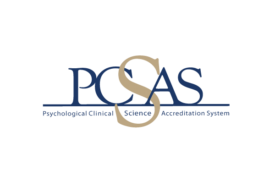-

New Content From Perspectives on Psychological Science
A sample of articles on personality and arts education, neuroscience, inner-experiences, emotions, moral judgments, dual- and single-process models, biases holding back theorizing in psychological science, and habits and goals.
-

PCSAS Licensure Parity in Arizona: 8 Lessons for Working with Legislators
In April, programs approved by the Psychological Clinical Science Accreditation System (PCSAS) were declared to meet the licensing requirements for practice in Arizona.
-

New Research in Psychological Science
A sample of research on saliency effects in visual working memory, collective action and radicalization, retrospective assessment of quality of parenting, body ownership and motor functioning in stroke patients, age-related changes in spatial navigation, jealousy in dogs, trust and academic cheating, and aging and prosocial motivation.
-

Million-Dollar Missed Opportunities? Tips for Getting Education Research Funding From NSF and IES
Proposals related to education are often reviewed by interdisciplinary panels that consist of a mix of scientists and educators.
-

Don’t Ditch the Laptop Just Yet: Replication Finds No Immediate Advantage to Writing Notes by Hand
Attempts to replicate previous studies suggest writing notes by hand may offer no benefit over typing.
-
The Curious Construct of Active Learning
Doug Lombardi, Thomas F. Shipley, and teams of researchers in STEM synthesize findings on STEM learning to provide a clear and coherent conceptualization of active learning and offer guidance on research and practice.

